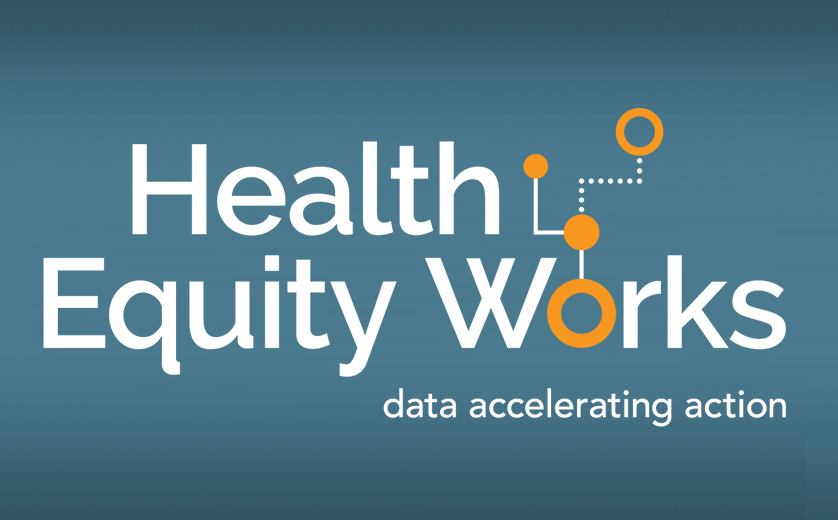For the Sake of All, the Brown School initiative dedicated to improving the health of all people by eliminating racial inequities in the greater St. Louis region is growing with an expanded mission and a new name called Health Equity Works.
Directed by Associate Professor Jason Purnell, Health Equity Works is committed to St. Louis and to translating data and research into collaborative community action to advance health equity. Their work in St. Louis continues and will expand in school health, economic opportunity, early childhood, quality neighborhoods and housing.
Health Equity Works’ evolving model of “data accelerating action” is also being applied to health disparities in other communities nationwide, and the initiative expects to expand its scope.
The name change comes after considerable reflection on the lessons learned from convening significant, collaborative initiatives, as well as planning how to elevate the impact of this critically important body of work:
With funding from the Missouri Foundation for Health, Dr. Purnell and colleagues from Washington University and Saint Louis University published the May 2014 community report For the Sake of All: A Report on the Health and Well-Being of African Americans In St. Louis and Why It Matters for Everyone. The initiative became the springboard for the development of models for partnering with the community to translate data into action.
The recent publication of the report Segregation in St. Louis: Dismantling the Divide, in collaboration with six community partners, provided clear evidence for the promise and impact of the partnership model. Just last week, the report’s partners in health, legal services, fair housing, and community development were referenced in an executive order by St. Louis County Executive Steve Stenger to create a task force to develop an affordable housing trust fund in the county. This was one of 11 recommendations made in the report. That task force includes Brown School Assistant Professor Molly Metzger and Gary Parker, director of the Brown School’s Clark-Fox Policy Institute.
The name Health Equity Works reflects an advanced framework that brings together research and community action. As Dr. Purnell puts it, the name “clearly states that health equity works to the benefit of entire communities by giving everyone the opportunity to thrive and flourish.”
The name also evokes a foundry of ideas, “where information and ideas are forged by partners into products that accelerate health equity,” says Dr. Purnell.
In school health, the initiative celebrated the opening of a school-based health center in Normandy High School last fall and expects two more to open very soon, thanks in part to the collaboration of its school-based health workgroup. That workgroup has merged with efforts led by the Missouri School Board Association and other partners throughout the state to launch an emerging affiliate of the national School-Based Health Alliance. The organization will support the continued sustainability and growth of school-based health centers statewide.
Last summer, the initiative also embarked on an ambitious project—with a $1.1 million grant from the Robert Wood Johnson Foundation—as a research and translation partner to enhance the uptake of the Whole School, Whole Community, Whole Child (WSCC) model. This model is designed to improve and align health efforts in schools. This outstanding group of faculty, staff and community partners are working in partnership with the national organizations America’s Promise Alliance and Child Trends on an initiative called Together for Health and Successful Schools, with Healthy Equity Works building a WSCC toolkit for schools. Research partners on the grant include the Brown School’s Center for Public Health Systems Science, Health Communication Research Laboratory, Social System Design Lab, and Prevention Research Center in St. Louis, and the Center on Society and Health at Virginia Commonwealth University. A national advisory committee is also providing guidance on the potential to share the final toolkit with schools nationwide.
Health Equity Works also is working on economic opportunity issues. In partnership with the Center for Social Development, it convened and continues to facilitate the work of the St. Louis Regional Child Development Account Collaborative, which is working to establish a Child Development Account program in 20 of St. Louis’s highest need ZIP codes. Under the program, each child in these ZIP codes would automatically receive $500 in a Missouri MOST 529 college savings account.
You can learn more about Health Equity Works and all of these important endeavors at their new website: healthequityworks.wustl.edu.
